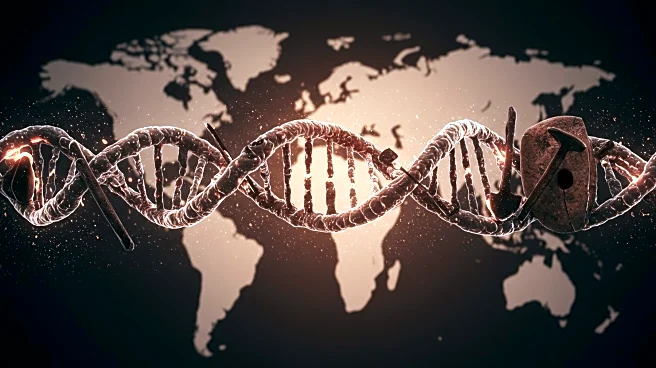What's Happening?
A recent study has identified a genetic variant inherited from Denisovans that may have aided Homo sapiens in adapting to the American continents. This variant, found in the MUC19 region of the genome, is prevalent among Indigenous American populations. The research, led by evolutionary biologist Emilia Huerta-Sánchez from Brown University, suggests that interbreeding events introduced significant genetic variation, which may have been crucial for survival in new environments. The study highlights the complex genetic history involving Denisovans, Neanderthals, and modern humans, with the Denisovan gene appearing in ancient Indigenous American genomes.
Why It's Important?
The discovery of the Denisovan gene's role in human adaptation underscores the significance of ancient interbreeding events in shaping modern human populations. This genetic variant may have provided an adaptive advantage, possibly influencing mucus production and microbial interactions, which are vital for health and survival. Understanding these genetic contributions can offer insights into the evolutionary pressures faced by early human populations in the Americas and may inform future research on genetic adaptations to diverse environments.








